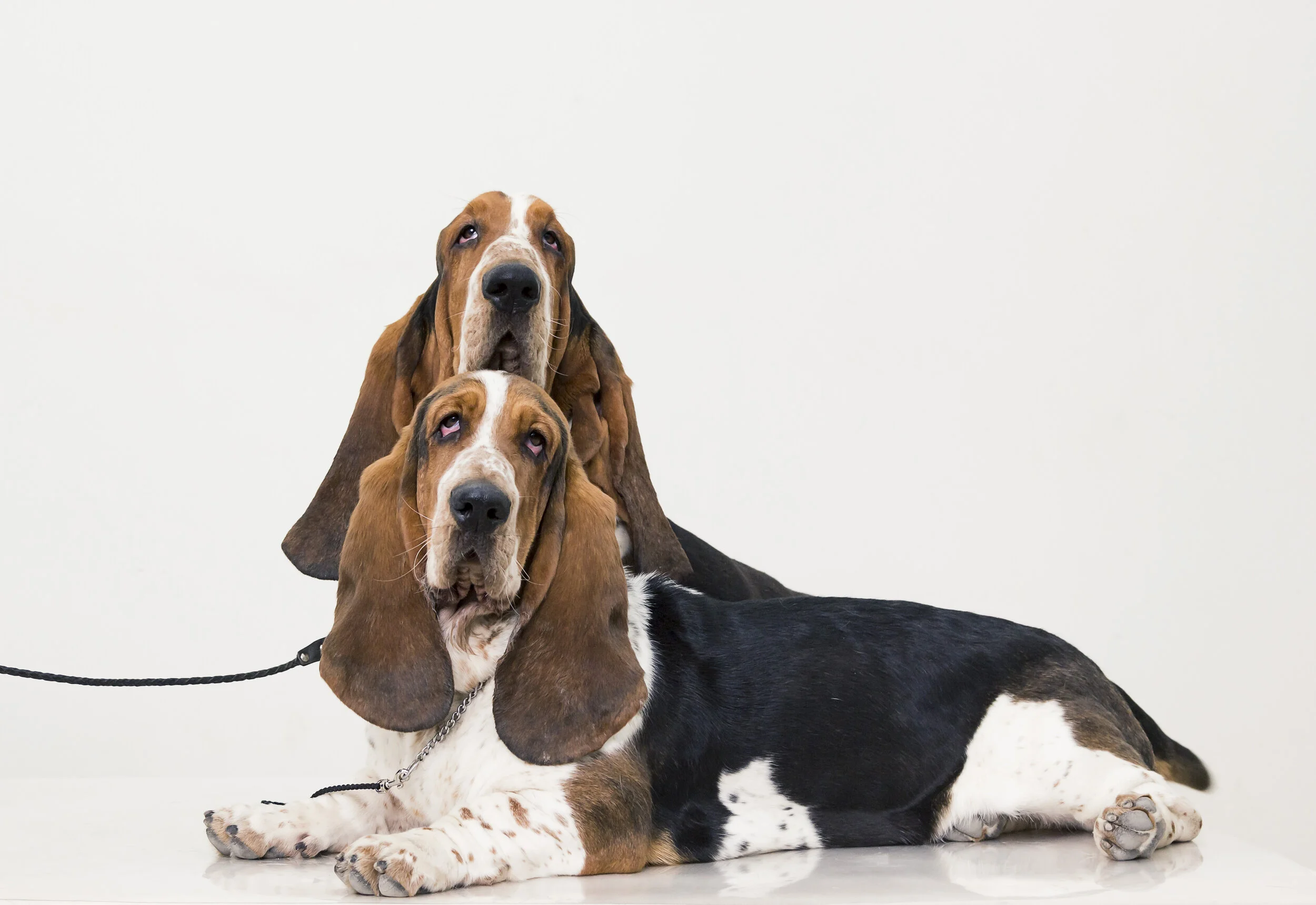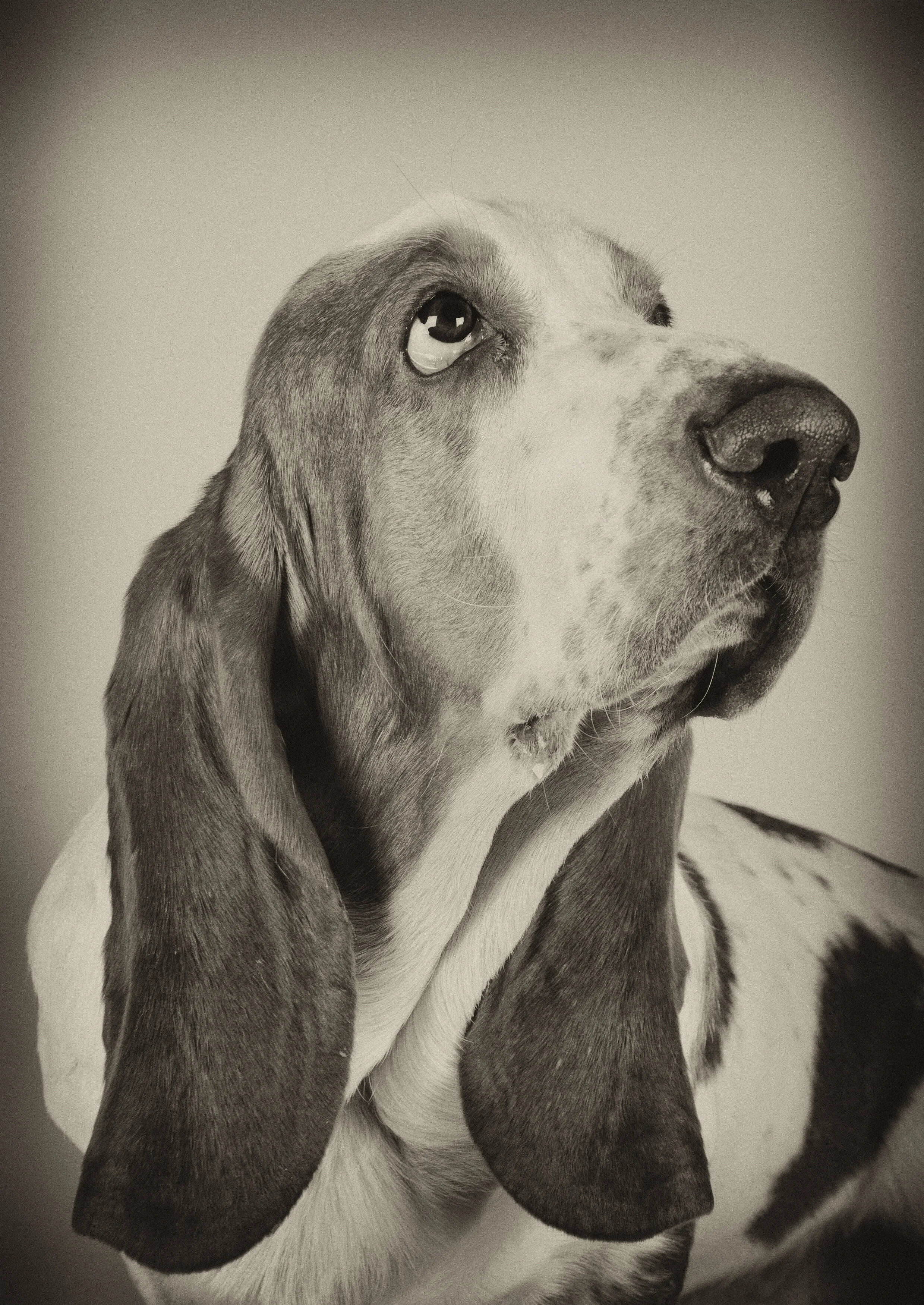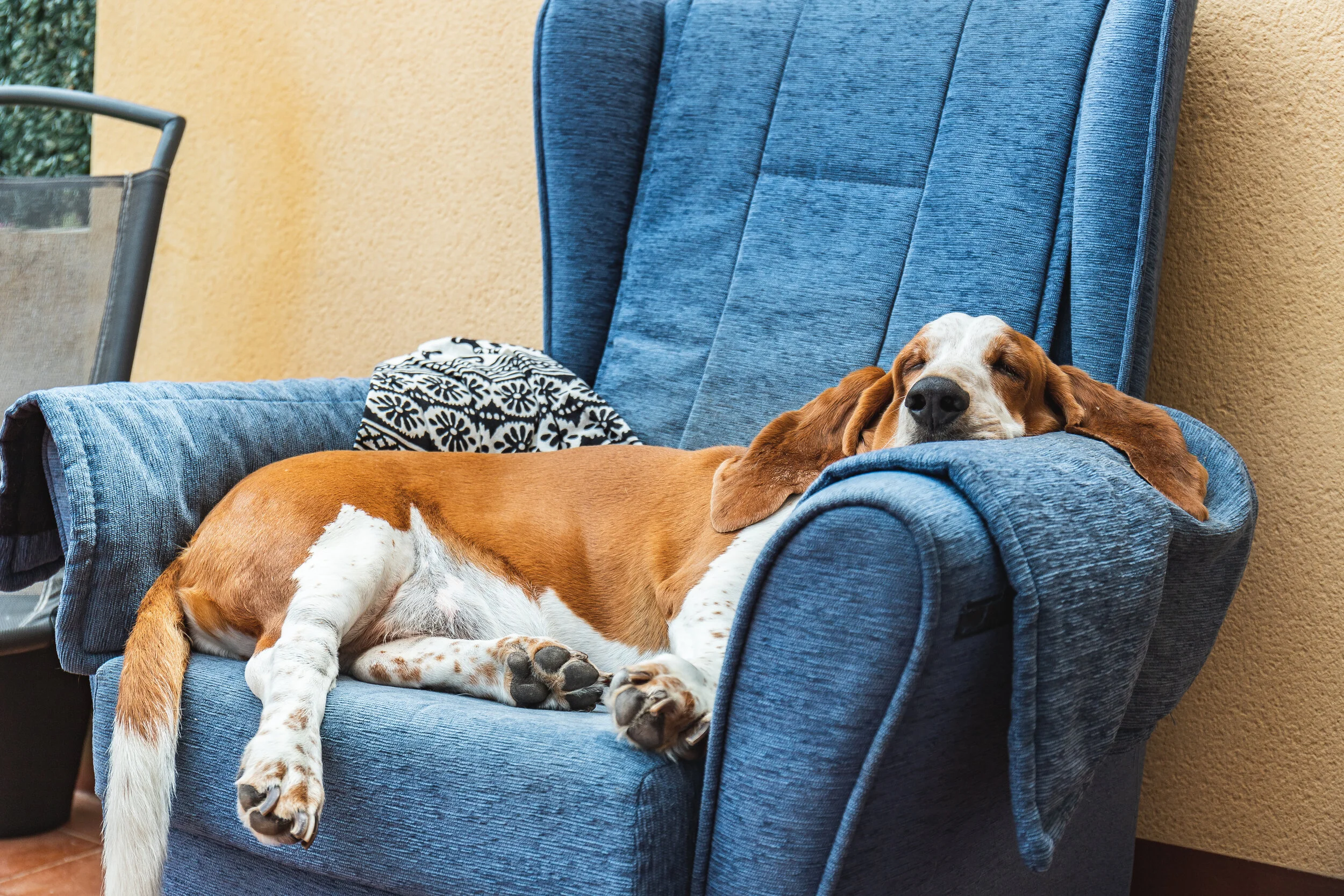
Breed Information
All you need to know about Basset Hounds

The Basset Hound as described by the AKC
The Basset Hound stands no higher than 14 inches at the shoulder but, with his remarkably heavy bone, powerful little legs, and massive paws, he possesses big-dog strength and stamina. Bassets are famous for a large, domed head that features extremely long, velvety ears, mournful eyes, and a wrinkled brow, which give the breed the look of a sad clown. Built more for endurance than speed, the Basset moves in a deliberate but effortless manner. The breed’s scenting ability is uncanny; it’s said that among dogs only the Bloodhound’s nose is more accurate. Mild and agreeable at home, the Basset is stubborn on the trail and barks in a loud, ringing voice. Although they may not be wildly demonstrative in their affections, they are steadfastly loyal.
Basset Hound History
History?
Basset Hounds were originally bred in France and Belgium (“basset” is French for “low”). It is thought that the friars of the Abbey of St. Hubert were responsible for crossing strains of older French breeds to create a low-built scenting hound that could plod over rough terrain while followed on foot by a human hunting partner tracking rabbit and deer. Their accuracy and persistence on scent made Bassets a popular choice for French aristocrats, for whom hunting was a way of life.

Is The Basset Hound Right For You?
What should I know about Bassets before bringing them into my family?
The basset hound is a friendly, easy-going dog. Bassets are people oriented and get along well with children. Having developed as pack animals, basset hounds do feel a need for company and are happiest when they have their families around. Fairly smart dogs, bassets are not easy to train as they are somewhat stubborn when they have their nose to the ground. A firm, patient hand with plenty of creativity is required to bring out the best in them. Basset hounds have a definite tendency to become obese, which can cause serious problems with their long backs, so monitoring food intake is a must. Bassets are usually described as lazy (Couch Potatoes), but they should have a good long walk at least once daily to keep them fit. Most bassets live to 12 or 13 years. They will love you forever, as you will love them!



